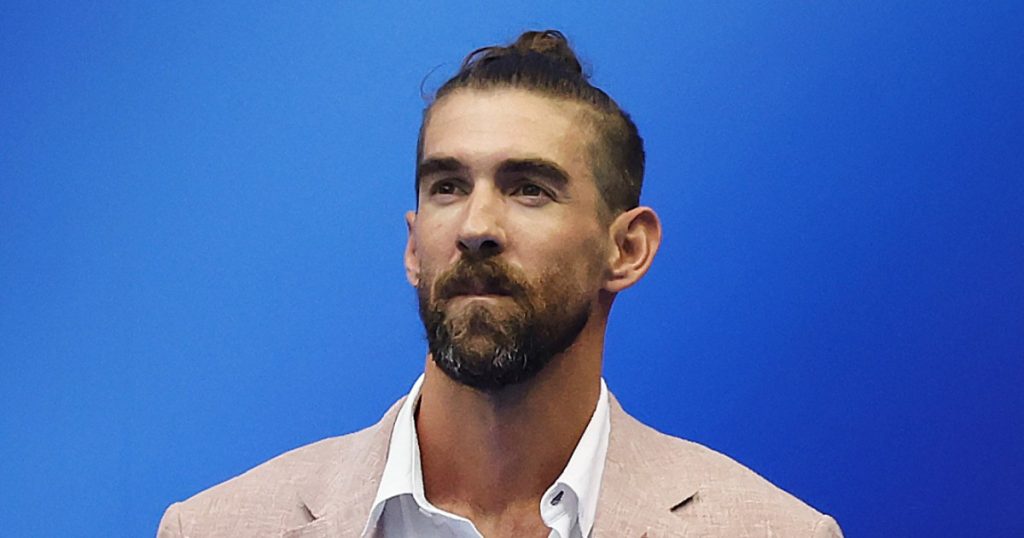In a recent interview, Olympic gold medalist Michael Phelps discussed his struggles with depression and how he initially viewed it as a sign of weakness. Phelps admitted that he had at least half a dozen bouts of depression and at one point in 2014, he didn’t want to be alive. After being arrested for driving under the influence and serving a suspension, Phelps secluded himself for four days. However, with the help of family and friends, he was able to confront his emotions and seek therapy, ultimately leading him to a place of gratitude.
Phelps encourages other men to embrace vulnerability and seek help for their mental health struggles. He credits his wife, Nicole, for her unwavering support throughout his ups and downs over their 15-year marriage. The couple has four children, and Phelps is open with them about his mental health challenges, explaining that sometimes he needs to leave the room when he is overwhelmed. Phelps is determined to be present for his family and address any mental health issues he is facing, wanting to create a generational shift where emotions and struggles are openly discussed rather than pushed aside.
Phelps spoke about how he initially viewed depression as a weakness, particularly as a male athlete striving to be the best. However, he learned that vulnerability and seeking help were essential steps towards healing. He emphasized the importance of confronting negative emotions rather than suppressing them, as he found himself in a dark place where he didn’t want to be alive. Through therapy and the support of loved ones, Phelps was able to navigate through his depression and come out on the other side, grateful for the journey.
Having been open about his struggles with depression, Phelps emphasizes the importance of allowing oneself to be vulnerable and seeking help when needed. He recognizes the role his wife, children, and support system play in his mental health journey, enabling him to be the best version of himself. Phelps wants to set an example for his children by normalizing discussions around emotions and struggles, aiming to create a more open and supportive environment within his family.
Phelps reflects on the impact depression had on him as a male athlete, initially seeing it as a weakness that could give his competitors an edge. Over time, he learned to embrace vulnerability and acknowledge that seeking help was a strength rather than a weakness. By sharing his experiences and encouraging others to prioritize their mental health, Phelps hopes to break the stigma surrounding depression and inspire others to seek the support they need.
While Phelps acknowledges the challenges he faced with depression, he is grateful for the support system that helped him through those difficult times. By being open about his struggles and advocating for mental health awareness, Phelps hopes to empower others to seek help and prioritize their well-being. Through his journey, Phelps demonstrates the importance of confronting emotions, seeking therapy, and embracing vulnerability as key steps towards healing and growth.


